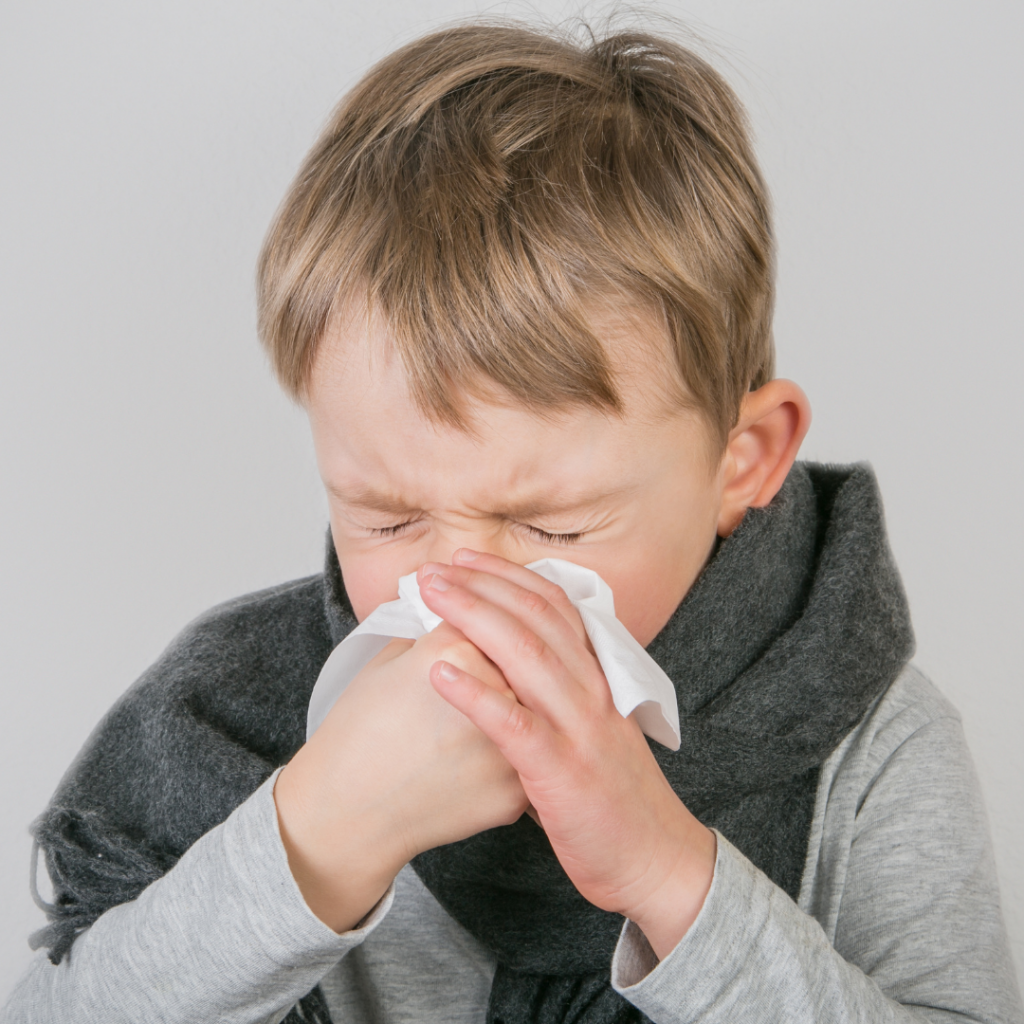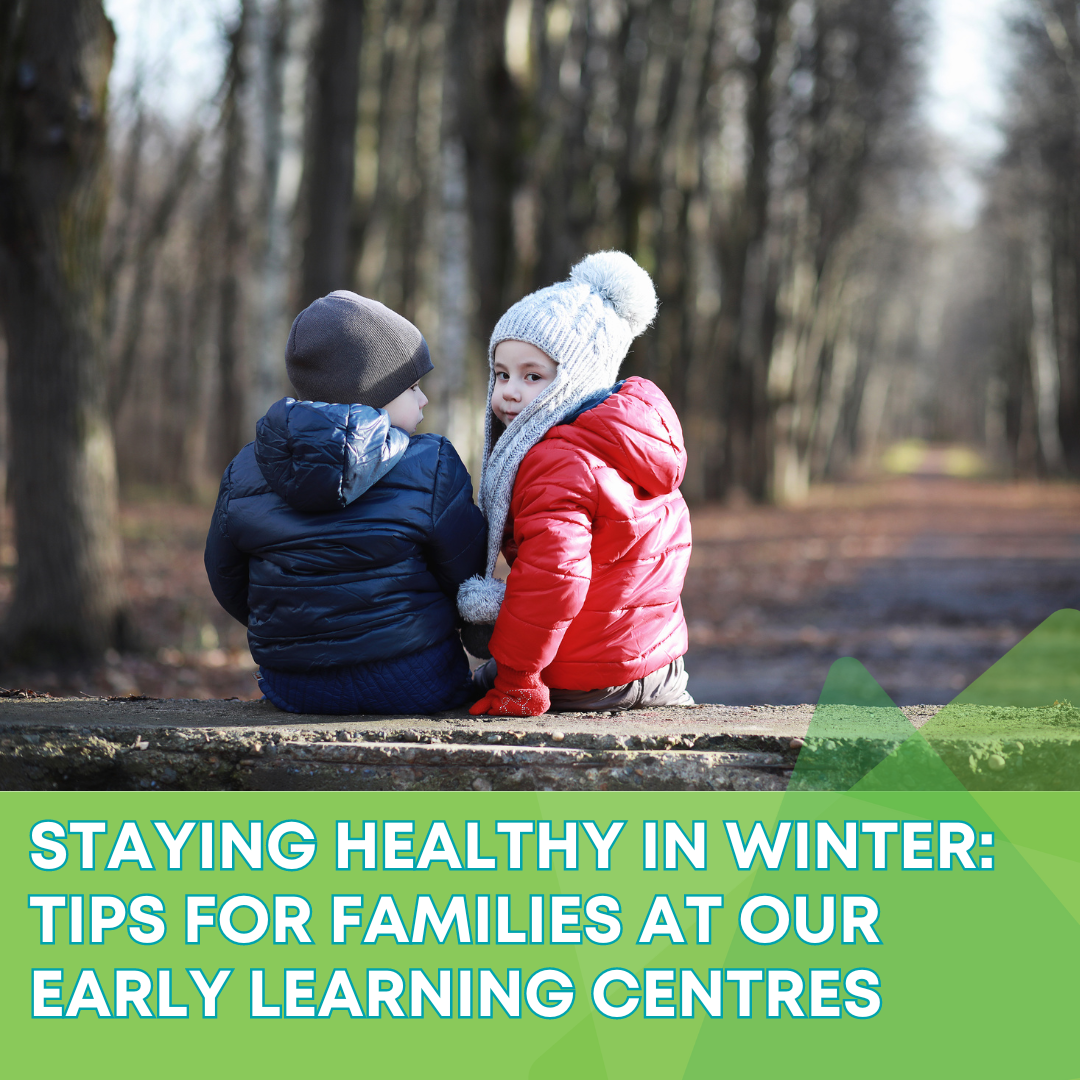As the winter months approach, it’s essential to prioritise the health and wellbeing of our children and educators. Colder weather often brings an increase in illnesses, making it crucial for everyone to take proactive steps to stay healthy.
At our Early Learning Centre, we are committed to maintaining a safe and healthy environment for all. Here are some practical tips to help your family stay healthy during winter and an important reminder about our illness procedures.
Immunisation and Disease Prevention
Immunisation is a simple, safe and effective way of protecting individuals against harmful diseases before they come in to contact with them in the community. Immunisation not only protects individuals, but also others in the community by reducing the spread of disease.
The Department of Health requires parents/carers to provide evidence that their child has received all the vaccines they need and to keep this evidence up to date with the service.
Boost Immunity with Nutritious Foods
A balanced diet rich in fruits, vegetables, and whole grains can strengthen your child’s immune system. Foods high in vitamins C and D, such as oranges, strawberries, spinach, and fortified cereals, are particularly beneficial. Including lean proteins and healthy fats can also help maintain overall health and energy levels.
Encourage Regular Handwashing
Handwashing is one of the most effective ways to prevent the spread of germs. Encourage your child to wash their hands thoroughly with soap and water for at least 20 seconds, especially before eating, after using the toilet, and after coughing or sneezing. Make it a fun routine by singing a favourite song while washing hands.
Keep Active Indoors
When it’s too cold to play outside, find ways to keep your child active indoors. Dancing, yoga, and simple exercises like jumping jacks or obstacle courses can keep them moving and help boost their immune system. Physical activity is crucial for maintaining both physical and mental health.
Ensure Adequate Sleep
Proper rest is vital for a strong immune system. Establish a consistent bedtime routine to ensure your child gets the recommended amount of sleep each night. For preschoolers, this typically means 10-13 hours of sleep, including naps.
Stay Hydrated
Even in cooler weather, staying hydrated is important. Encourage your child to drink plenty of water throughout the day. Warm beverages can also be soothing and hydrating.
Dress Appropriately
Make sure your child is dressed in layers to stay warm both indoors and outdoors. Hats, scarves, and gloves are essential for outdoor play. Ensure their clothing is comfortable and suitable for the changing temperatures.

Illness and Contagious Diseases
In the interests of the health, safety, and wellbeing of all children and educators, it is imperative that children who display signs of illness are kept at home. If your child becomes ill while attending one of our children’s programs, you will be contacted and asked to collect your child or arrange to have your child collected as soon as practicable.
Please let the service know if your child is not attending because they have been diagnosed with a contagious illness. Educators are required to notify all parents when a child attending the service has contracted a contagious disease.
The Department of Health has published the ‘Minimum Period of Exclusion from Primary School and Children’s Services Centres for Infectious Diseases Cases and Contacts’.
This table is available from the following link and is used to determine exclusion periods (if required).
Early Childhood Educators will follow the advice of the relevant government body should specific measures be required following a notification of a contagious disease.
These processes help to minimise the spread of illness and ensures a healthier environment for everyone.
By following these tips and adhering to our Illness and Contagious diseases procedures, we can work together to keep our Early Learning Centre a healthy and safe place for all.
Let’s embrace the winter season with good health habits and a strong sense of community care.
Stay warm and healthy!
If you would like to learn more about the Department of Health No Jab, No Play legislation, we recommend the following articles:
http://No Jab No Play for early childhood education and care services | health.vic.gov.au
Interested in similar content? Check out our related articles:
http://5 Benefits of Outdoor Play for Children – The Y Whittlesea Children’s Programs (ymca.org.au)


